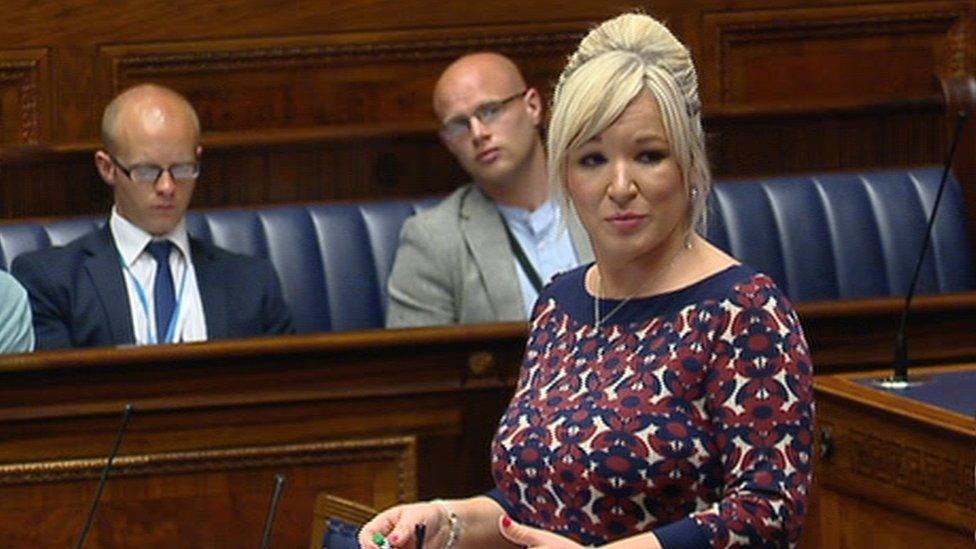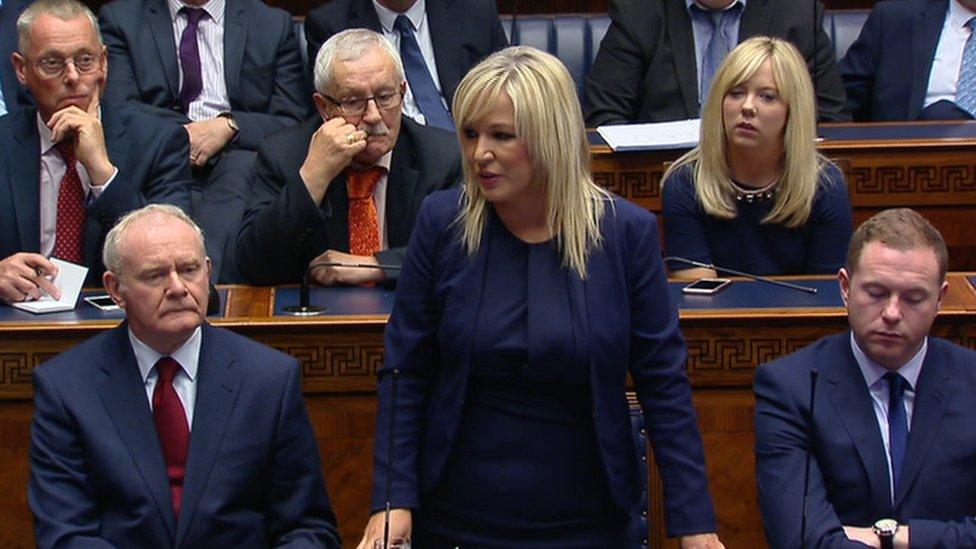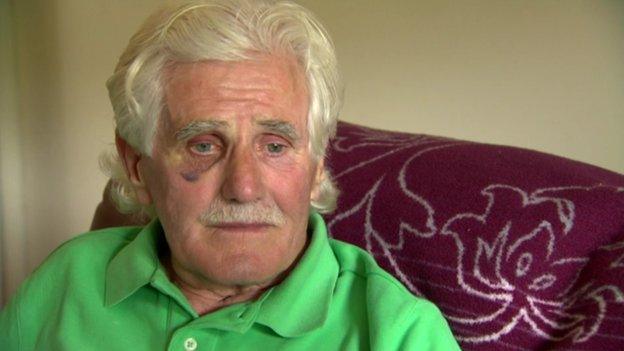NI waiting lists: Minister Michelle O'Neill says more investment is needed
- Published

In her first statement to the Northern Ireland Assembly since being appointed health minister, Michelle O'Neill said excessive hospital waiting times were unacceptable
Northern Ireland's health minister has said her department needs significant additional funding to meet the growing demands within the health service.
In her first statement to the Northern Ireland Assembly, Michelle O'Neill said that excessive waiting times were "unacceptable".
But she added that in order to tackle the problem, additional investment is required.
Mrs O'Neill, from Sinn Féin, was appointed as health minister on 25 May.
She told MLAs: "I will assure the assembly, patients and their families, that long waiting times are completely unacceptable to me.
"However, I will need time, new investment, radical change in how we deliver services to create the conditions for a sustainable health service and the better outcomes that we all want to see."
She added that 80,000 patients have benefitted from additional funding allocated last November but said she would be bidding for further additional resources.

Analysis - BBC News NI health correspondent Marie Louise Connolly
It is significant that Ms O'Neill chose to address the problem of waiting times in her first statement to the assembly as health minister.
She said that it would require not only additional funding, which she would seek via Stormont's June monitoring round, but also additional investment would also be required.
The minister also mentioned the prospect of radical reform which could be recommended under the Bengoa health review.
Batting off several challenges from MLAs who were guarded about losing potential hospital services in their area, Ms O'Neill said unless there was meaningful change they would be back time and time again debating the same issue.

Alliance Party MLA Chris Lyttle asked the minister what "specific radical reform she plans to deliver that her predecessor did not".
Mrs O'Neill said she recognised that "the pace of change was not quick enough".
"I want to take the body of work that Professor Bengoa has been involved with and actually seriously transform our health service, otherwise we will be having this debate time and time again."
She added: "The only way we are going to get that is to have real pace of change and real meaningful change that actually reconfigures how we deliver services.
"That's my priority in the time ahead and that is the legacy I want to leave in this department."
- Published25 May 2016

- Published22 July 2015
